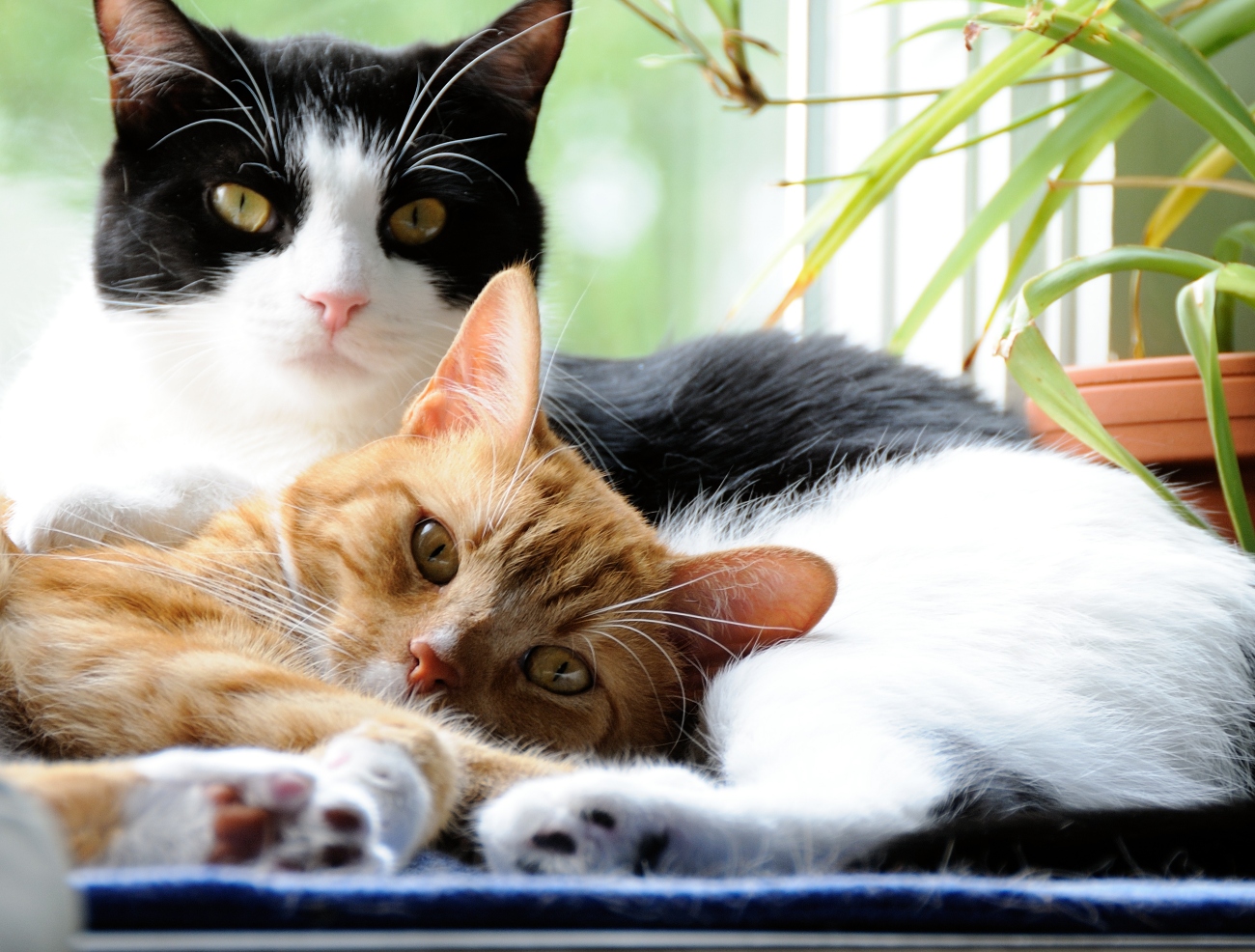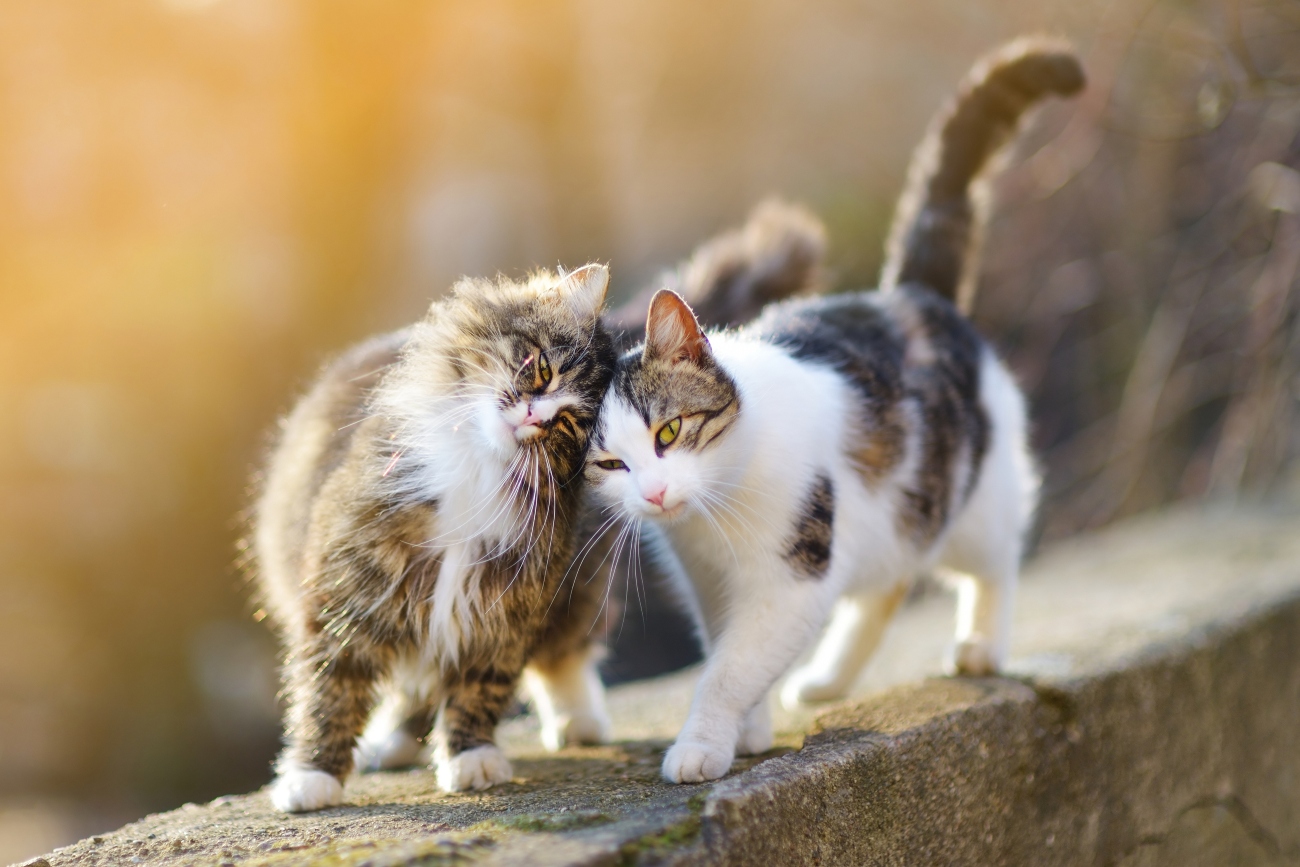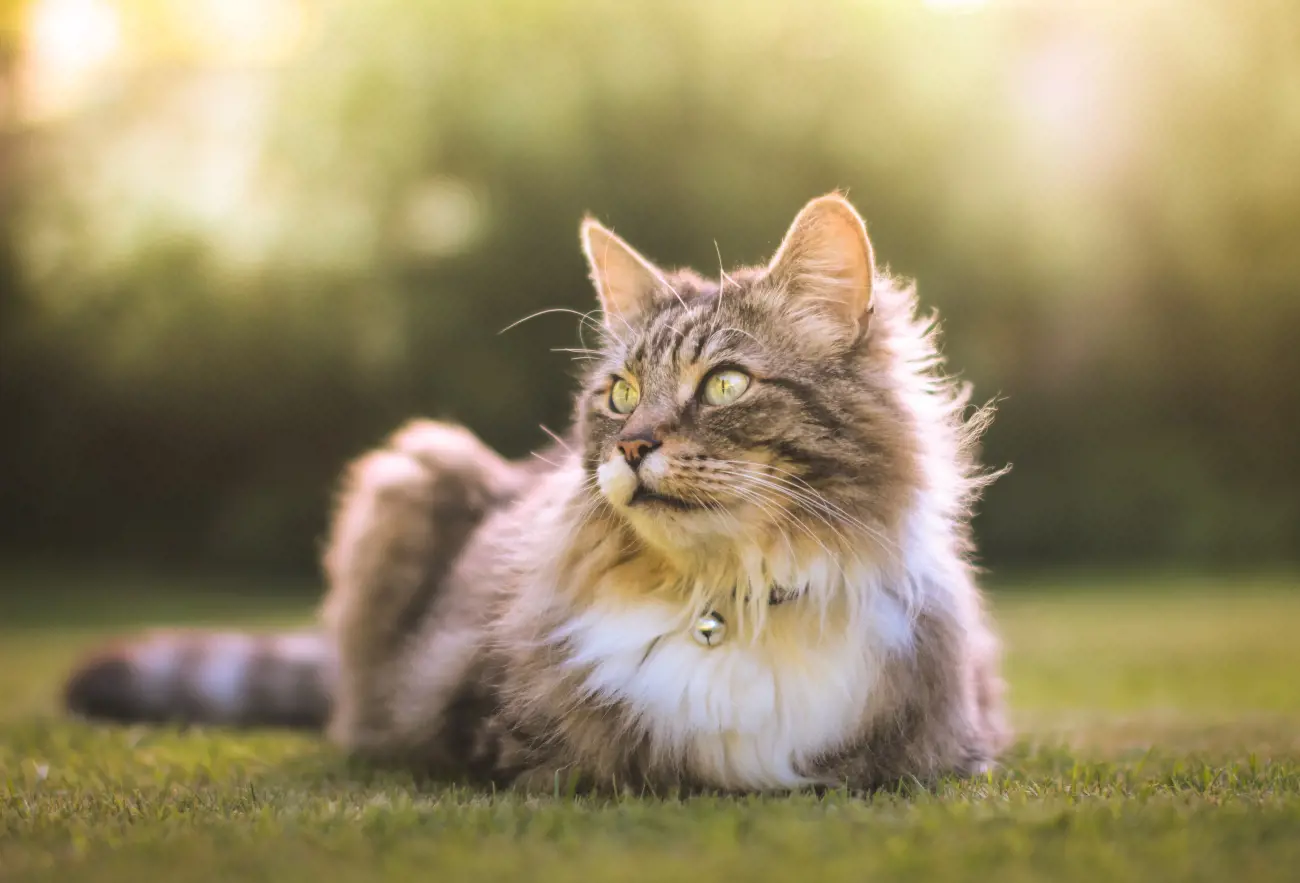Should I get a male or female cat?
24th August, 2022

Planning to add a cat to your household? Congratulations! Cats make wonderful companions, and we suspect that you and your family are in for some happy, affectionate times ahead.

You may be searching the classifieds looking for the perfect cat or kitten. You may be visiting shelters, or asking for recommendations from friends.
Perhaps your choices are based on a preferred colour, or age, or simply what's available at the time?
But have you considered gender as the basis for your choice?
Do male, or female cats make for more rewarding companions?
There are, in fact, a variety of factors at play here. One or other sex may be slightly more affectionate; less demanding; or more inclined to stay at home, rather than wandering far and wide.
There are slightly different health risks associated with each gender, too.
Read on as we reveal the typical differences between male and female cats. Whichever you choose, remember to protect your exciting new arrival with some cat health insurance.
Are male or female cats most demanding?
The popular belief is that female cats tend to be more demanding than their male counterparts. Female cats will crave more attention from you. They will also not hesitate to let you know when they want something, using plenty of noisy meowing to get your attention!
The same theory holds that male cats are typically more laid-back. They will enjoy your attention when they get it – but are quite happy to do their own thing the rest of the time.
But is this really true?
Often, it will depend more on each cat's personality and upbringing.
Just like us humans, cats do have distinctive personalities, and some cats will simply have a more assertive personality. Others, regardless of their gender, will be calmer.
Life experiences will also come into the equation here.
If a cat has grown up in a household where they have had to work harder to get attention – to be fed, to be played with, to be let out when required – they are likely to be more vocal. In contrast, a cat sharing a household with, say, one devoted owner and no other pets will have no competition and may not feel the need to make their presence felt.
Other variables can influence a cat's temperament, too.
For example, certain cat breeds are naturally noisier than others. Burmese and Siamese cats, for example, are known to be particularly vocal. Incidentally, both these breeds are somewhat prone to a variety of health conditions, such as certain inherited neurological defects that may result in crossed eyes. The distinctive head shape of Siamese cats, in particular, leaves them at risk of various periodontal diseases and respiratory illnesses.
As a result, if you do own or are considering owning a Burmese or Siamese cat, we would strongly recommend taking out some cat health insurance from the moment they arrive in your home – as, indeed, we would for all breeds.
By the way, certain cat breeds are likely to be more expensive to acquire in the first place, even before you've begun to factor in additional costs, such as cat health insurance. We take a look at the various breeds and their associated expenses in this article.
Finally, hormones may play a key role in a cat's behaviour and assertiveness.
For example, unneutered male cats may behave aggressively towards both people and other animals. The situation is slightly different for unneutered females, who may be quite attention-seeking when they come into heat, but more self-sufficient the rest of the time.
Will a male or female spend more time at home?
Many new cat owners hope for a calming, furry presence dozing on an armchair for much of the day. However, some are disappointed when it turns out that their new feline friend wants to spend large portions of the day (and night) exploring the world outside.
After a day out in the streets, hunting or prowling their territory, the cat in question may turn up briefly for an evening feed, before promptly dashing back out again.
One popularly held belief has it that male cats are far more given to this roving behaviour, whereas female cats will be much more inclined to stick around at home. By this wisdom, if you want lots of company during the daytime, you'll be better off with a female.
But again, how much of this behaviour is rooted in gender?
Well, in this case a cat's neutered status will definitely have a role to play.
Essentially, before or until they are neutered, both male and female cats will want to spend large portions of the day roaming the neighbourhood looking for a mate. Incidentally, these wanderings may take them quite far away from the family home on some occasions, and it's not uncommon for cats in this situation to get lost and not return for a few days.
You shouldn't worry too much if this happens, as they probably will get their bearings within days – and/or hunger will drive them home again.
However, if you are anxious about a lost cat, it may be good to know that one of the benefits of many cat health insurance policies is a contribution towards the costs of looking for your cat.
Here at Purely Pets, our cat health insurance policies include a contribution ranging from £1,000 to £2,000 towards advertising and reward in the event of your cat straying far from home.
Conversely, neutered female and male cats will be more inclined to stay at home – or at least, will roam less far from home, no longer feeling that imperative to look for a mate. That said, cats do have hunting in their DNA, and even a neutered and pampered housecat will still retain that urge to go out and catch prey.
Are boy cats or girl cats more affectionate?

Many cat owners will tell you that males are naturally more affectionate, and build up an easier bond with their owners. Females tend to be more aloof. Once again, other factors besides gender will come into play here.
Yes, neutered male cats tend to be laid-back, affectionate and playful – and will probably form close bonds with their owner and even, sometimes, with other cats. Females, on the other hand, have a reputation for aloofness that isn't always deserved.
For one thing, unneutered females will spend much of their time 'in heat' looking for a mate. They can be quite loving and affectionate during this time! Neutered girls, on the other hand, will be more relaxed, and probably slightly less playful than their male counterparts.
Personality will be a big decider: some cats are simply more independent, others happiest around their humans.
What we can say, for both genders and most personalities, is that most cats prefer to live alone with their human owners, and will prefer not to have other pets competing for food and attention.
A cat's early experiences will have some bearing on how affectionate they are. If the cat has been socialised (around humans) since kittenhood, they are far more likely to be confident, content and affectionate around you.
Who’s more likely to get into a scrape with another cat?
This one area where we can say with confidence that gender does make a difference – although only in the case of unneutered cats. Yes, boy cats who haven't been spayed will be highly territorial, and will defend their territory if another cat enters it.
Unneutered males are more likely to be aggressive towards other males, to mark out their territory, and to actively seek out females in heat. This can lead to fights – which, of course, can leave your cat with injuries.
In fact, the risks from fighting with other cats don't end with a few cuts and scrapes.
Cats who fight put themselves at risk of contracting feline immunodeficiency virus (FIV), which is spread by saliva – typically from a bite during a fight with another cat. This disease leaves them with a weaker immune system than other felines.
How serious could this turn out to be?
Well, cats that contract FIV will immediately suffer from a mild, short-lived illness that their owner may not even notice. It's after this stage that things can get more serious: the cat's immune system starts to decline, but often without symptoms.
Indeed, FIV cats may often have a similar life expectancy to uninfected animals. They are, however, generally at greater risk from various common diseases, including skin problems, respiratory infections, and certain types of tumours.
That said, all cats are more or less at risk from these various conditions. It's for this reason that we'd urge you to arrange lifetime cat health insurance for your pet, whatever their gender, age and neutering status.
And let's remember, too, that aggression is not purely an unneutered male phenomenon.
There are plenty of other cues for cats to become angry, such as encountering a stranger in 'their' territory. Scared or confused cats, or animals in pain, can also behave aggressively. In stressful situations such as these, all cats – male, female, neutered or intact – may react defensively.
Should I get my cat neutered?
By now, it should be clear that gender is often not the most crucial factor in a cat's behaviour. Their neutering status – whether they have been spayed / castrated or are still intact – is likely to have more bearing on how they go about their lives.
So, should you have your cat neutered?
Well, yes: neutering is generally recommended. The procedure brings with it various advantages.
Neutered males, as we have seen, will be calmer and more relaxed. They will also run less risk of catching feline immunodeficiency virus (FIV). Getting outside will also be far less of an imperative for them.
An unneutered cat who can't get out may become frustrated, and they have been known to try any escape routes they can – including upper windows.
On the other hand, your neutered male will be far less likely to go missing, get hurt in a fight, or get hit by a car.
On the female side, neutered (or, in this case, 'spayed') cats are at greatly reduced risk of contracting two serious illnesses: cancer and infection of the womb (or pyometra). Both of these illnesses can be fatal, so it's quite a relief to have them off the menu.
What's more, pregnancy and birth can both bring with them significant risks for your cat.
All of which is not to say, of course, that you shouldn't continue to provide your spayed female cats with some excellent cat health insurance.
There are benefits to you, the owner, from neutering as well. For one thing, an unneutered female cat can produce up to three litters.
Result: many more mouths for you to feed!
What's more, owners of female cats who have not had the operation can find it very stressful keeping an eye on them and making sure that they don't get pregnant. If and when they do, the processes of pregnancy, birth and rearing of a litter is stressful, time-consuming and (especially without some specialist cat health insurance) potentially very expensive.
That fact of an unneutered female cat coming constantly into heat means that you may well attract a queue of interested (and noisy) tomcats at your front door. These unneutered males can tend to mark their territory (including your house) with a powerful, unpleasant-smelling urine.
If you’re trying to get rid of that horrible cat pee smell from your home, we’ve got some top tips here.
Neutering also brings with it advantages to the wider cat community. The sad reality is that, every year, thousands of cats are put to sleep because not enough homes can be found for them. You can play your part in bringing down this statistic by neutering your cat, and reducing the number of unwanted felines being born.
Last but not least, neutering can have the very welcome benefit of making your cat happier and calmer. It can eliminate certain bad behaviours, such as urine spraying, fighting, and roaming far from the family home, which are caused by their sexually active status.
When should I have my cat neutered?
Cats are typically spayed or castrated at around four months old. This is because they generally become sexually active around a month later, so this early neutering wards off the danger before it begins.
The operation happens soon after your kitten has completed their first round of primary vaccinations. Your vet will contact you when it's time to have the procedure.
In terms of cost, you will typically pay between £40 and £80, depending on the vet you use, to have a male cat neutered. Females cost very slightly more, between £50 and £100.
This fee will probably not be covered by your cat health insurance, as insurers take the view that a routine procedure like this can be budgeted for and is part of responsible pet ownership.
However, a look at our cat health insurance page will show you that insurance brings many other benefits. Or read our blog on whether pet insurance covers spaying for more in-depth information.
By the way, if you didn't get your cat neutered at the four-month stage, it is perfectly possible to carry out the procedure later in life.
Do male and female cats look different?
We all know that all cats have an unmistakable general look to them, and that one animal will differ from the next far less than, say, two widely differing dog breeds. And, in fact, many of the distinctions that do exist are down to breed.
Maine Coon, British shorthair, Rag Doll and Sphinx, for example, all have their own particular appearance, while still conforming to the general cat look!
However, there are a few differences that come down to gender.

For example, 'calico' cats (three colours, typically white with orange and black patches) are almost exclusively female, as are orange and black 'tortoiseshells'. On the other hand, it's rare to find a female cat with orange, ginger or orange and white striped fur. Animals sporting those colours are very probably males.
Elsewhere, male cats are typically bigger and heavier than females. Boys also tend to have larger, wider cheeks, giving them a more rounded face.
Interestingly, this is a result of the testosterone that male cats produce. Specifically, bigger cheeks send out a signal of physical fitness and strength to other cats. A male cat with large cheeks will appear ready to fight (to another male), or ready to mate with a female.
This physical characteristic will often remain after castration.
Health problems and life expectancy
Female cats are at risk of a certain number of health complaints. Alongside pyometra, which we've already mentioned, girl cats can fall prey to uterine cysts and tumours, mammary cancer, and false pregnancies.
The good news here is that simply getting your female cat spayed will remove or reduce the risk of many of these complaints. The reason for this is that spaying removes the ovaries and uterus – two of the organs most susceptible to disease.
Male cats have a set of their own health issues. These include feline tail gland hyperplasia. Also known as 'stud tail', this causes infections in a cat's tail glands, and results in a foul-smelling fluid.
Other conditions that can affect male cats include prostate and testicular cancer, urinary tract obstruction, and undescended testes.
Diagnosis and treatment for these different conditions will vary according to their seriousness.
You should find that your cat health insurance is able to help with some of the costs here, though.
The difference here is that, unlike with female cats, many of these health problems are not prevented by castration.
There's also the question of life expectancy to consider. After all, before getting your new cat, you may wish to have some sense of how long they are likely to be with you.
So, which gender has the better prospects for a long life?
Well, one major recent study indicated that female cats tend to outlive their male counterparts by around two years. Other factors, though, influence life expectancy: for example, neutered cats live longer than intact animals, mixed-breeds tend to outlive purebreds, and – perhaps unsurprisingly – house cats tend to get a longer life than those that are allowed to roam outside.
Cat health insurance – for every cat, male or female
Whatever gender you end up choosing, make sure to protect your new furry friend with some cat health insurance.
Benefits our policies here at Purely Pets include:
- Free 24-Hour Vet Helpline
- 15 levels of Lifetime Cover
- Excess from just £60
Helpful Pages
Recent Posts
Pet Insurance Quote
- 98% claims paid *
- Claims paid directly to vets
- 24/7 vet video consultations
- Interest free monthly payments




